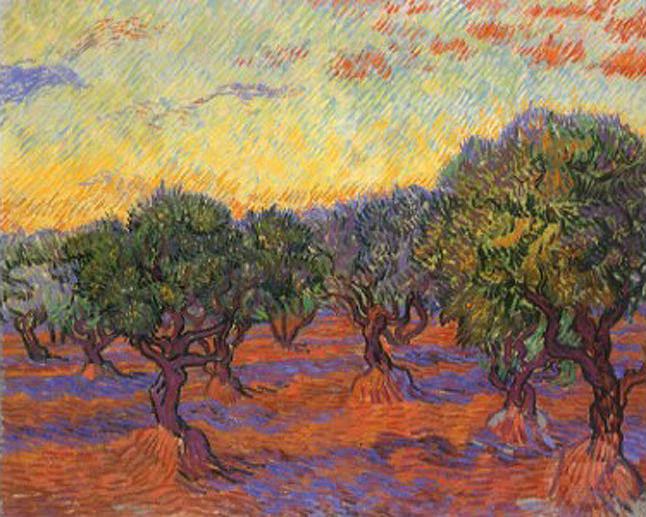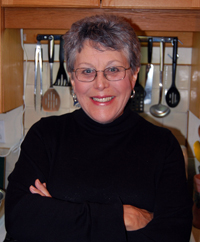

Do you know that BC grows olives? On Pender and Saturna Islands, several growers have had success with experimental plantings of Frantoio and Leccino varietals of the olive tree.
When you win the lottery, you might be able to start an olive grove near Osoyoos —though no-one has yet — but in the meantime Canadian olive oil is not for sale on the mass market. It’s too bad, because imported olive oil is often not what it seems.
In August, 2007, The New Yorker magazine published a Tom Mueller feature “Slippery Business,” a scathing indictment of the Italian olive oil business. It seems that what we might buy in Canada as Bertolli oil — as well as oils packaged by Unilever and Nestlé, two of the largest American oil importers — may in fact be blended oil from sources other than olives — hazelnut, soy, sunflower, and canola — with colouring and flavouring added. “In 1997 and 1998,” Mueller reported, “olive oil was the most adulterated agricultural product in the European Union.” The E.U.’s anti-fraud office set up an olive oil task force. One of its investigators told Mueller that “profits were comparable to cocaine-trafficking, with none of the risks.”
Doesn’t this hurt small oil producers of true olive oil? Of course. It also hurts retailers, and it leaves consumers in the dark about what it really is they’re buying. Unfortunately, although the Italian government, as well as the E.U. took action to curb abuses of olive oil import and production, it hasn’t solved the problem for consumers in Canada.
In 2007, the Canadian Food Inspection Agency reported that of the 45 extra-virgin olive oil samples pulled from Canadian stores for testing, 15 were found to have been blended with sunflower, canola or soy oil, or with lower grade oil including pomace, the cheapest olive oil, made from pressing the discarded pith and nuts of already processed olives.
In 2009, three Canadian importers and distributors of olive oil were convicted under the Canada Food and Drug Act. Implicated in these convictions were olive oils brands Emma, Casa Italia, Cortina, and Mastro, according to Canwest reporter Susan Semenak in a March 2010 internet article. For instance, Eddie Zilli, president of Santa Maria Foods of Toronto, was ordered in July, 2009, to pay a fine of $150,000. Unlawfully imported oil, sold under the Mastro label, was labeled as extra-virgin but actually contained over 50% sunflower oil.
The CFIA recommends that consumers beware extra-virgin olive oils that seem unduly inexpensive. Semenak reports that finding fraud is an expensive operation. A series of tests on olive oil in Canada can cost over $1000 a run.
Extra-virgin olive oil is cold pressed, meaning that the olives and their oils are not treated by high heat,which renders the fats less digestible and less healthy. Extra-virgin is the most desirable of the many varieties of olive oil—and by far the most expensive, which is why terrific profits are to be made from doctoring cheaper oils to masquerade as extra-virgin olive oil. Standards are set internationally by the U.N-affiliated International Olive Council. But detection remains difficult and expensive.
Semenak quotes Claudia Pherand, co-owner of olive oil shops in Montreal and recently a consultant with the Canadian government investigating olive oil fraud. “Extra-virgin olive oil is pure fruit juice, and it’s expensive to harvest and to produce. You can’t get it for $4.99 a bottle,” she quoted as saying.
All the more reason to support Crescendo’s olive oil products. As a consumer, I had read the New Yorker article several years ago. Naively, I assumed the problem had been solved. Not so. This week I googled “olive oil fraud,” and onto the screen popped the rest of the story. Am I promoting Crescendo? You bet. Who needs canola labeled as olive oil?
Through Vom Fass, the German wholesaler of the oils and balsamics at Crescendo, the authenticity of Crescendo olive oils is guaranteed. One buyer oversees the whole production line, going to suppliers personally. The balsamic vinegars, on the other hand, are hand-crafted in Waldberg, Germany. Both the olive oils, other nut oils, and balsamics are available only through Crescendo.
You can check this out for yourself by googling Vom Fass (it means “from the cask.”) The German site, also available in English, along with detailed (though poorly translated) articles describing the many products Crescendo produces. The U.S. Crescendo site has lots of wonderful food ideas — check it out. Here are some recipes — the ice cream one is for you to test, as I don’t yet have an ice-cream maker (lookout Deenie, here I come!) Let me know how it turns out.



